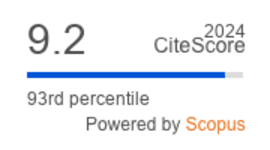The Impact of Antidepressants on Gut Microbiome and Depression Management
DOI:
https://doi.org/10.36877/pmmb.a0000446Abstract
Depression is a widespread psychiatric disorder that significantly impacts an individual’s quality of life. It affects mental and emotional well-being and has far-reaching consequences on their physical health, relationships, and overall ability to function in daily life. Recent advances in psychiatric research have revealed a connection between the gut-brain axis, a bidirectional communication system linking the brain's emotional and cognitive centers with intestinal functions. Antidepressants, including selective serotonin reuptake inhibitors (SSRIs), tricyclic antidepressants (TCAs), and monoamine oxidase inhibitors (MAOIs), are commonly prescribed to alleviate symptoms of depression. However, their influence extends beyond neurotransmitter modulation in the brain to significant effects on gastrointestinal physiology. Antidepressants can alter gut motility, secretion, and microbiota composition, which in turn can influence mood and mental health. This review aims to provide insights into the impact of antidepressants on gut health and their implications for depression treatment. Additionally, it explores the potential of probiotics as an adjunct treatment to enhance the efficacy of antidepressants and mitigate gastrointestinal side effects. Restoring healthy gut microbiota can improve gastrointestinal and mental health outcomes, suggesting a promising avenue for integrated therapeutic approaches.
Downloads
Published
How to Cite
Issue
Section
License
Copyright (c) 2024 Ee-Kit Tang, Ke-Yan Loo, Angel Yun-Kuan Thye, Jodi Woan-Fei Law, Loh Teng-Hern Tan, Malarvili Selvaraja, Sivakumar Thurairajasingam, Learn-Han Lee, Vengadesh Letchumanan

This work is licensed under a Creative Commons Attribution-NonCommercial 4.0 International License.
Author(s) shall retain the copyright of their work and grant the Journal/Publisher right for the first publication with the work simultaneously licensed under:
Creative Commons Attribution-NonCommercial 4.0 International (CC BY-NC 4.0). This license allows for the copying, distribution and transmission of the work, provided the correct attribution of the original creator is stated. Adaptation and remixing are also permitted.

This broad license intends to facilitate free access to, as well as the unrestricted reuse of, original works of all types for non-commercial purposes.
The author(s) permits HH Publisher to publish this article that has not been submitted elsewhere.



.png)

.jpg)
